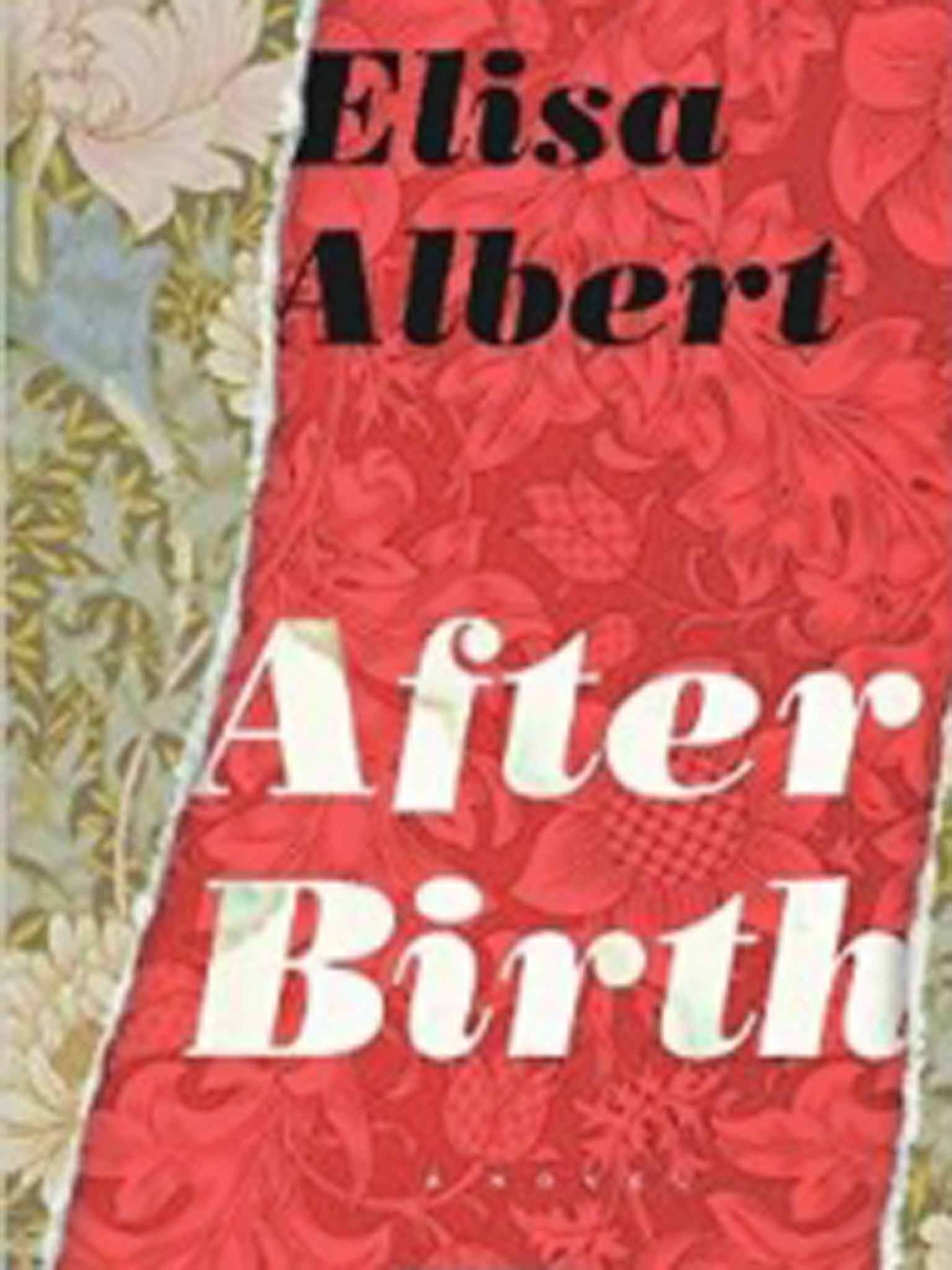After Birth, by Elisa Albert - book review: A gutsy, refreshing take on relationships between women
One of the many refreshing things about After Birth is that fundamentally it's a book about relationships between women

After Birth is a novel that will provoke strong responses from its readers; it is gutsily and sometimes messily – as the case should be – feminist in its politics. Firstly, though, it's entertaining, funny and heartfelt. And, most importantly, Albert can write. She's clever and caustic, and her prose crackles with energy; sometimes something primal, sometimes slightly manic – either way it's always there.
Ari and her husband Paul live in the college town where he teaches in upstate New York. Their son Walker is about to turn one, thus although Ari's past the "blur of newborn stitches tears antibiotics awake constipation tears wound tears awake awake awake limping tears screaming tears screaming shit piss puke tears", she's still struggling, feeling like a "desperate isolated hausfrau scrounging for simpaticos in this backwater shitbox".
Enter Mina Morris, one-time bass player for 1980s all-girl band The Misogynists, nine months pregnant, no partner in sight, and with her eyes firmly on the prize: a home birth – earth mother extraordinaire and the object of Ari's obsession.
One of the many refreshing things about After Birth is that fundamentally it's a book about relationships between women. Paul floats around in the background – he's good at some things, not so great at others; in short, he's a pretty average human.
But this isn't a book about a marriage, its subject is female experience: Ari's formative relationships with other women, from that with her own mother, who died of cancer just after Ali got her first period, through all the friendships from her school days to Mina; and her own experience of motherhood. Mina may well have got the birth thing down but she is struggling to breastfeed her newborn, so Ari steps in, the two of them creating a sort of mini fourth-wave feminist utopia in Mina's living room.
This is necessary and powerful because it dares to go there. It's not just that it captures the ambivalence of maternal love – "Sometimes I'm with the baby and I think: you're my heart and my soul, and I would die for you. Other times I think: tiny moron, leave me the fuck alone so I can slit my wrists in the bath and die in peace" – but it also reclaims the female body. As Ari says, "volumes upon volumes on exploration, war, violence, the life-threatening transformative journeys of man" exist, but talking about a woman's menstrual cycle is out of bounds: "The fucking, the sadness, the dark, the blood, the light. They will burn you at the fucking stake for this shit."
Join our commenting forum
Join thought-provoking conversations, follow other Independent readers and see their replies
Comments
Bookmark popover
Removed from bookmarks